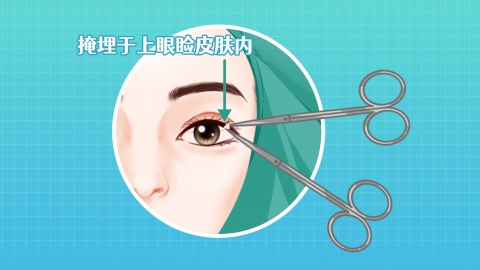What should I do if my double eyelids are more swollen after the stitches are removed?
Generally, increased swelling after suture removal in double eyelid surgery might be caused by normal physiological response, individual differences, improper postoperative care, wound infection, or allergic reactions. Treatments may include general therapy and medication under a doctor's guidance. Detailed explanations are as follows:

1. Normal Physiological Response
During the tissue healing process after surgery, mild swelling may occur due to incomplete recovery of local blood and lymph circulation. Alternating cold compresses and warm compresses can help. Cold compresses reduce exudation by constricting blood vessels, while warm compresses accelerate metabolism by dilating blood vessels. Noticeable improvement usually occurs within one week, possibly accompanied by mild swelling.
2. Individual Differences
Everyone's healing ability differs, as does sensitivity to surgical trauma and recovery speed. Massage and laser therapy can be used. Massage stimulates lymph circulation and helps dissipate fluid accumulation, while laser therapy uses high-energy light to promote collagen remodeling and increase epidermal thickness, improving appearance. Laser therapy costs approximately 1000-5000 yuan. Massage effects appear gradually, potentially requiring 2-3 months, whereas laser therapy typically shows improvement within 3-4 weeks.
3. Improper Postoperative Care
Improper care practices such as frequent eye rubbing, excessive eye use, or getting the wound wet might worsen or delay resolution of swelling. Enhanced postoperative care, including following medical advice to apply antibiotic ointment or take oral antibiotics to prevent infection, and keeping the wound clean and dry are recommended. Swelling usually decreases within a week after improved care, possibly accompanied by mild pain or redness.
4. Wound Infection
Infection might occur due to bacterial invasion, leading to intensified local inflammation and worsened tissue edema. Symptoms might include redness, warmth, and increased secretions. Treatment options include medications such as erythromycin ointment, mupirocin ointment, or cefradine capsules, used as directed by a physician.
5. Allergic Reaction
Allergic reactions may be related to the patient's allergy to suture materials, postoperative medications, or skincare products. Allergies can cause localized swelling, possibly accompanied by itching, redness, rash, and other symptoms. Treatment options include medications such as loratadine tablets, cetirizine hydrochloride capsules, and traumatology medicines, used as directed by a physician.
In daily life, maintaining sufficient sleep, avoiding staying up late, and ensuring adequate rest are beneficial for eye recovery. Keeping the eyes clean and dry, and avoiding rubbing the eyes or touching unclean objects are also important.







